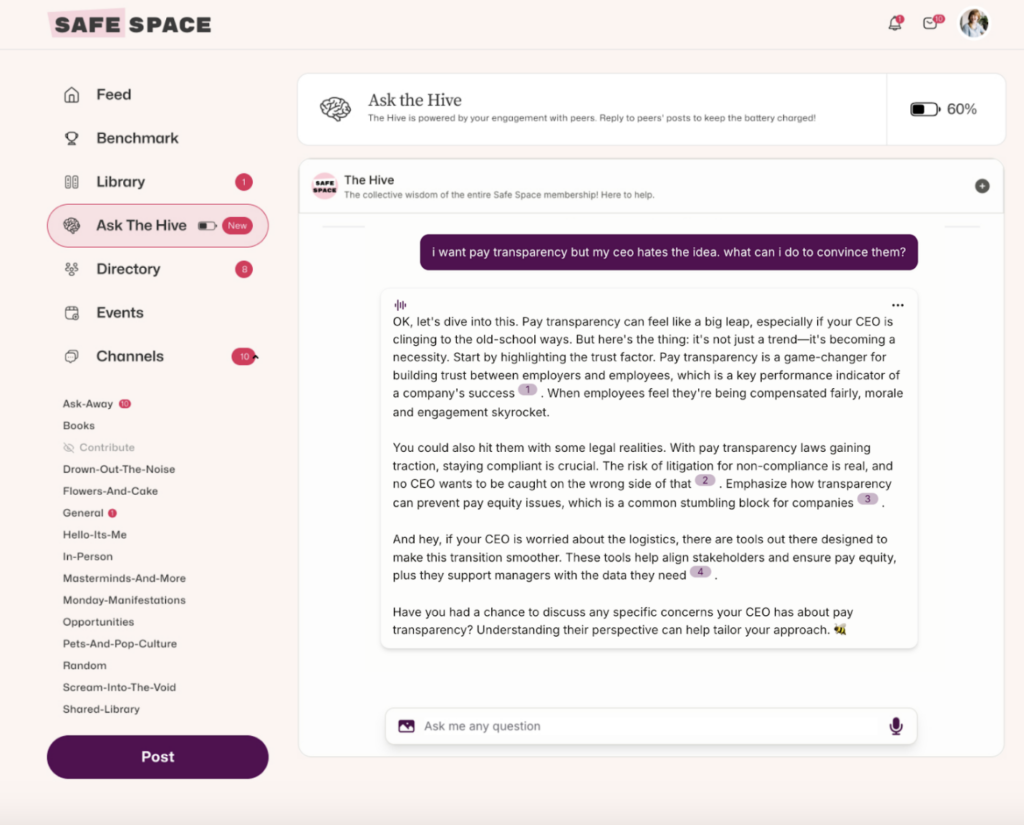
✍🏽 Hello! I had to attend a mandatory out of state work conference, and while I was there, I came down with a fever and tested positive for Covid. Because of that I spent 3 days in the hotel room and did not attend the conference those days. When I got my paycheck I realized that they did not pay me for those days. I work/live in California. Is that legal for them to not pay me while on an out of town mandatory work trip for the days I was sick? Thank you so much!
Context: I am a school leader at a Public Charter school in California. We are nationwide.
📣 RyanMae Pepin, Director of People at Blackthorn.io:
CA has sick time laws for 5 days (40 hours), so if this was in 2024 and you hadn’t exhausted your sick time, they should have paid you regardless of circumstances.
As for the out-of-town element, they should have covered the costs associated with the travel, but since you missed the conference, I am not sure you can argue you need to be paid for that time.
📣 Cassandra Schaffa, Director of People at Mixlab:
I would think that those would be considered sick days under your regular sick policy. I know that California has mandatory paid sick leave.
Was there a process for you to request sick time or for your manager to submit sick time on your behalf that maybe got missed before they processed payroll? I would check your handbook or inquire with HR.
Safe Space members can join this discussion here. Not a member yet? Apply to join here.

✍🏽 What is the protocol to reject a candidate you have already rejected after they apply again?
Context: Often times, when we restart a search we have rejected candidates reapply to roles. Is it a best practice to reject them again? Or simply leave their application unanswered? Does the rule apply for the same candidate if they apply for a different role? How about the ones that apply to EVERY role?
📣 Melissa Stough, HR Coordinator at Project Genesis:
I was the recruiter at my company for the better part of the last 3.5 years, and this was a frequent occurrence. There are many reasons for it, but one thing to always double-check are any applicant questions (if there are any) and the job requirements. Having recruited for various levels, I have seen how poorly designed applicant questions or poorly written job requirements can cause many people to mistakenly believe they fit the role.
From a recruiting standpoint though, I believe everyone should be informed if they aren’t selected. As much as it hurts to be rejected, I think not knowing if their application was ever reviewed is worse. However, I believe how they are rejected depends on the situation.
For example, if it’s someone who applies to every opening, regardless of what it is and how their experience meets the requirements, an automated rejection is fine. They could be applying because they like the company or the pay or they could be applying because they have to show they’re job seeking for unemployment or it’s a position that has been open for a while and think the company may be desperate to fill it. Regardless, if they are not a good fit, they are not a good fit. It’s tedious and frustrating, but I think it has to be done. Use your software to your advantage here.
If it’s someone that was rejected because there were better candidates or they were rejected in the middle of the process, and they are applying to another role that isn’t a great fit for them, a more personalized rejection would be the way to go. It would be a great opportunity to build a network of candidates to reach out to if similar roles come up. You may also get a sense as to why they’re applying for that role even if it’s not a great fit.
JOIN 150K+ HR LEADERS
Get insights, learnings, and advice on how to build companies and cultures that people actually love.
No spam. Unsubscribe any time.
📣 Krista Lane, Founder & Principal Consultant at Headwaters HR:
This happened a lot at a company I was recruiting for years ago. We still rejected them so they weren’t in total limbo, but it was often the lowest priority because we were a lean team dealing with too much volume. The form letter message included something along the lines of “we encourage rejected candidates to reapply after one year or significant additional experience has occurred since their last application.”
That way, the expectation was already set in writing that they risk resetting the clock if they re-applied too early, but we had some wiggle room to consider two common ‘special’ cases:
- a university student we rejected in spring who had a great internship elsewhere that summer – OK to engage just a few months later in the fall for the following summer.
- an industry candidate we really liked, but didn’t have the best role for them open at the time – OK to engage whenever the ideal role for them opens up.
The form text mostly went to people who never made it to an interview, but we made sure to verbally communicate it to candidates rejected later in the process. It was so long ago I don’t remember the numbers, but it did cut down significantly on spammy reapplications.
Safe Space members can join this discussion here. Not a member yet? Apply to join here.


